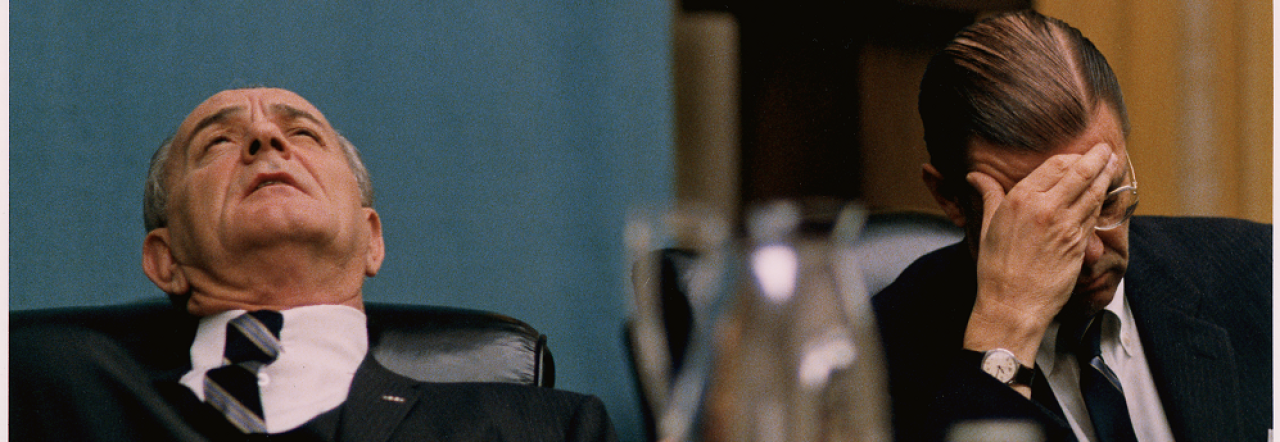In order to understand the issues of the day I have always contended it is essential to look back on history for the answers. That is why I was so pleased to hear the perspective of Doris Kearns Goodwin this morning on “Meet The Press”. Her views, along with those of Jon Meacham, added much to the national dialogue about the health care reform law.
MR. GREGORY: Historic but also arduous, and certainly health care was. And if you look at the tone of this debate, some of the calls for violence, some of the violence against congressional offices, racial epithets, all the rest, you heard Senator Graham say the process was “sleazy,” it harkens back to another time.
MS. GOODWIN: Well, each time we’ve passed one of these major legislations, there’s been a lot of turmoil around them. I mean, after Social Security, for example, in 1936, Landon, which we were just talking about before, ran to repeal that bill. He claimed in the ’36 election that in your paycheck they would be taking out the payroll tax and you’d never get it back. And he ran on that issue, and he won a huge election, FDR did, as a result because he fought back. I think the key thing that the legacy is not simply what this is going to do for the future but what it’s done, which you started on, to Obama’s leadership. You know, when LBJ got civil rights through in ’64, he said it felt so incredible inside to have done something that will make life better for millions of Americans. He said, “Now I’m going for voting rights. Now I’m going for Medicare.” It emboldens a president. The fact that it was so tough in the Congress, and it became difficult, they’re in the trenches together, they’ve come out more unified, the Democrats. The party has its morale back up. Even the, the sense of the countries abroad, he’s a winner, he won something. I agree with you that the battle’s only begun, because the battle of public sentiment was never won by the Obama people. The Republicans won it with the “death panels,” they won it maybe with falsehoods, but still the majority of the people still don’t feel good about this bill. So they still have a lot to do, I think, to compress their arguments and make sure that they reach the country. Lincoln once said, to go back to yet another guy, as he claims I always do…
MR. MEACHAM: It’s Sunday.
MR. GREGORY: If it’s Doris, it’s Lincoln and Roosevelt.
MS. GOODWIN: OK, I promise, this is it.
MR. MEACHAM: (Unintelligible)
MR. GREGORY: No, this is, this is–we love this.
MS. GOODWIN: This is the end. No, Lincoln once said that “He who molds public sentiment is more important than he who passes laws.”
###
MR. MEACHAM: …a cautionary lesson to all of us who, who render instant judgments. But he managed to do something that they’ve been trying to do since Theodore Roosevelt. And for all the rage and all the rawness that’s out there, which is very ugly and very disturbing and, to my mind, disproportionate to, to the legislation, this is, as John Dingle has said, somewhat to the right of where Richard Nixon was. And so I think we should remember that as, as important this is, we need to look at it proportionately and with a sense of balance.
###
MR. GREGORY: Well, that–that’s a question, Doris. What are the expectations that the American people have right now of government on the other end of the arduous process that has been health care?
MS. GOODWIN: Well, I think that’s one of the things that needs to be worked on if public sentiment is going to be changed. Before the Obama campaign began, people were saying they trusted government more. It was one of those sea changes, a little bit, from the Reagan era of conservatives hating government. And now they’re just so mad at the process that we have to be able, I think, if you are a Democrat, or even if you care about government, to show that government did come through in the end in a certain way. You know, the funny thing about the way this process worked, even though everybody said it was so horrible and he should have taken control earlier, the one thing LBJ always said was that they have to be with you on the takeoff if they’re going to be with you on the landing. And he made Congress feel engaged in this process. Even though it seemed it went on much too long, by the end, boy, they were there with him on the landing. They got the credit, they got the recognition. I think my favorite moment at that moment was when that guy stood up, and he said, you know, “You’ve taken your lumps.” “We sure did, but we’re still standing.” He’s linked to them in a way. But now the–still, I couldn’t agree more that the sentiment in the country has not yet been changed on this. And unless they do that, then I think the Democrats will be in trouble.


So they will block everything that is gonna be good for the whole american people to think they didnt do anything for the past 8 years except support the war and never mind the people that lives in the US. Think redneck are all dumb? NO, only the stupid republicans! we know who is wrong and who is right!